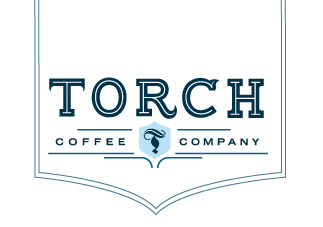SCAA ROASTER CERTIFICATION - LEVEL 1
The SCAA Roaster Pathway Level 1 course establishes the roasting craft with coursework in coffee analysis and evaluation, green coffee processing and sample roasting, as well as production management and safety. The on-the-job requirement of completing 100 hours of commercial roasting will ensure students can apply the hands-on instructions received in class, and gain valuable experience with professional roasting equipment. This course consists of 25 hours of classroom time, a written exam, and completion of the Roaster Code of Conduct.
For your convenience, we offer the Roaster Level 1 course together with SCAA Foundation courses and other SCAA and SCAE courses. Course schedule varies depending on the lab you are attending.
Roaster Level 1 includes the following classes:
CB200 MILL TO ROASTER: GREEN COFFEE PRICE & CONTRACT IMPACTS
This class introduces students to the definition, history and professional concepts behind managing the flow of coffee from seed to cup. It covers the part after farming and processing when coffee beans arrive at the roasting facility for the next process. CB200 explores in detail the financial, time, and quality implications at each stage in the green coffee supply chain from the time coffee might be contracted: coffee cherry to consuming country warehouse.
CB205 GREEN COFFEE BUYING ESSENTIALS
This class provides instruction and activities to help green coffee buyers gain competency in using accepted terminology of the green coffee market, having tools for negotiating and purchasing effectively, and buying green coffee through spot, forward, and direct purchases successfully. Students have to complete the prerequisite classes (CB100 and CB200) which provide a solid foundation for understanding green coffee contracts before taking this class.
GE151 GREEN COFFEE GRADING
This class focuses on the physical evaluation of green coffees according to SCAA Grading Standards via hands-on exercises. Students will learn to use the SCAA Arabica Green Coffee Defect Handbook to discuss the cause and effect of the identified defects, as well as what necessitates testing and evaluation of green coffee.
RP104 DECAFFEINATION
This class is designed to provide a knowledge base of the decaffeination of green coffee. Students will be introduced to the chemical composition of coffee in relation to caffeine, and a brief history of decaffeination, followed by an in-depth discussion of the various processing methods, and an opportunity to taste coffee from three or more decaffeination methods. The class also covers quality issues surrounding decaf coffee, market share, market opportunities, and pertinent terminology.
RP110 BASIC ROASTING EQUIPMENT & OPERATION
This class presents an overview of the different equipment found in roasting facilities, the many types of roasting systems that vary by manufacturer (patented or proprietary systems), heat application system, and expected operator performance. By studying the sophistication of roasting equipment throughout history, students can observe the roles roasters have played in the development of the craft of roasting, and look at the process of roasting from a different angle than the usual straightforward, hands-on methods.
RP112 INTRODUCTION TO ROASTING CONCEPTS
This class lays the foundation for successful small batch roasting by introducing critical terms and concepts that are the underpinning of the roasting process. Students are guided through initial roast development (everything before first and second crack) and taught to observe how decisions and actions can affect the final product (both positively and negatively). Through hands-on practices in class, students will learn to manipulate and adjust a small batch drum roaster to meet their desired craft roasting goals.
RP120 PROFILE ROASTING PRACTICES
This hands-on, intermediate level roasting workshop enables a roaster to define and apply profile roasting practices. With only a short lecture, this class focuses on profile definitions followed by comparative cupping, whereby students will spend most of their time at the roaster, recording data and comparing results through sensory analysis.
RP208 ROASTER PLANT SAFETY ESSENTIALS
This class introduces working roasters to warehouse safety concepts in all areas including Personnel, Product, and Equipment safety. Its purpose is to increase awareness of common safety issues and proactively work to address these issues effectively. The class also covers ways to develop protocols for roaster fire safety and roaster preventative maintenance. Students will be engaged in hands-on activity during this class, including investigating coffee roasters and pinpointing the critical areas of cleaning and maintenance.
RP223 SAMPLE ROASTING
This class prepares students to be able to evaluate green coffee for buying decisions, by training them to consistently roast samples using typical sample roasting equipment and cupping with the SCAA protocol as the recommended guide. It helps students begin the process of creating a consistent sample roasting program, including checking green grade, recording information, storing samples, making conscious buying decisions, having a roasting log, and maintaining equipment.
PREREQUISITES and REQUIREMENTS FOR LEVEL 1
- PREREQUISITE: All SCAA students are required to obtain certification for Foundations of Coffee before taking this course. Foundation courses are offered in a bundle together with Level 1 courses and include the following:
- CP103: Customer Service Essentials
- CB100: Seed to Cup
- CP151 & 152: Brewing and Extraction Principles and Principles Applied
- GE103: Orientation to SCAA Cupping
- REQUIREMENT: Completion of the Roaster Code of Conduct is a requirement for the Roaster Pathway Level 1.
- REQUIREMENT: Candidates have up to 3 years to complete the entire Level 1 course and testing.
Need to retest? Contact our labs directly for information.
